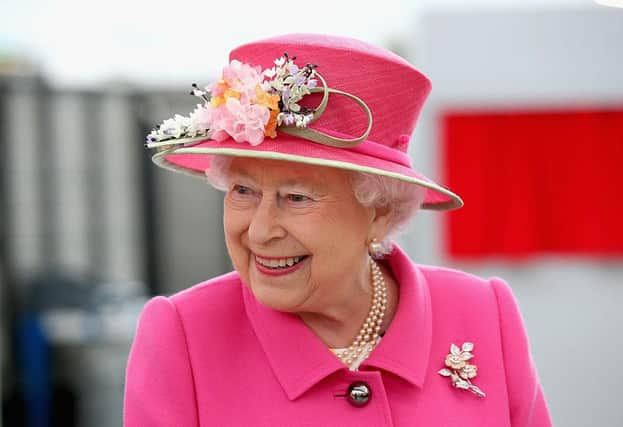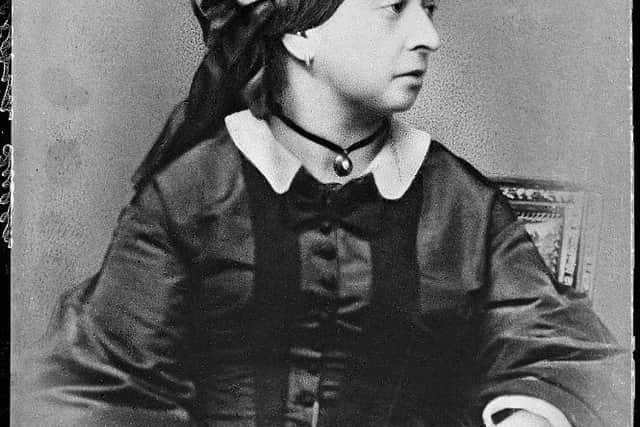Who is Britain’s longest reigning monarch? Here’s how long Queen Elizabeth II and past rulers have held the throne


An extra bank holiday in 2022 will mark the Queen’s Platinum Jubilee, making for a long weekend of celebrations that will honour the monarch’s 70th year on the throne.
A four-day bank holiday weekend is planned, with a large programme of public events mixing “traditional pageantry with cutting edge technological displays” set to take place.
Advertisement
Hide AdAdvertisement
Hide AdThe late May spring bank holiday – which would otherwise have fallen on Monday 30 May – will be moved to Thursday 2 June, with an additional bank holiday declared for Friday 3 June.


Here is everything you need to know about Her Majesty’s record-breaking reign, and Britain’s other longest-reigning monarchs.
How long has Queen Elizabeth II reigned?
Queen Elizabeth II has reigned since 1952, and the Platinum Jubilee will be the first time any British monarch has reached the historic milestone of 70 years on the throne.
But Her Majesty is already the longest reigning king or queen in British history by a considerable margin; at the time of writing, she is five years ‘ahead’ of her nearest competitor, Queen Victoria.
Victoria reigned for 63 years and 216 days between 20 June 1837 to 22 January 1901. Elizabeth’s reign currently stands at 68 years and 277 days.
Elizabeth technically acceded to the throne at the age of 25 upon the death of her father, King George VI, on 6 February 1952, not a date the head of state would wish to base celebrations around.
Celebrations are instead planned to take place from 2 June 2022, the 69th anniversary of her coronation at Westminster Abbey.
Who else had long reigns?
George III currently holds the record of Britain’s longest reigning king, having sat on the throne for 59 years and 96 days between the years of 1760 and 1820.
Advertisement
Hide AdAdvertisement
Hide AdBehind him, James I ruled for 57 years and 246 days between 1567 and 1625, and in fourth place is Henry III, who spent 56 years and 19 days on the throne between 1216 and 1272.
The rest of the ‘top 10’ longest reigning monarchs looks like this:
- Edward III: 50 years, 147 days
- William I of Scotland: 48 years, 360 days
- Llywelyn of Gwynedd: c. 44 – 45 years
- Elizabeth I: 44 years, 127 days
- David II of Scotland: 41 years, 260 days
Who are Britain’s shortest reigning monarchs?
The shortest-reign of any British monarch is that of English noblewoman Lady Jane Grey, who ruled for 9 days from 6 July until 15 July 1553.
However, Lady Grey’s reign is disputed by historians, and so the monarch with the shortest definitively known reign is Edgar the Ætheling who ruled as king for just two months and 12 days in 1066 before submitting to William the Conqueror.
How will the Platinum Jubilee be celebrated?
“Spectacular moments” will be planned in London and other major cities, alongside events in communities across the UK and the Commonwealth.
The Culture Secretary said: “Her Majesty’s Platinum Jubilee will be a truly historic moment – and one that deserves a celebration to remember.
“We can all look forward to a special, four-day Jubilee weekend, when we will put on a spectacular, once-in-a-generation show that mixes the best of British ceremonial splendour with cutting edge art and technology.”
Members of the royal family are expected to take part in the celebrations over the extended weekend and in the run-up to the four-day extravaganza.
Advertisement
Hide AdAdvertisement
Hide AdIn keeping with tradition, a Platinum Jubilee medal will be awarded to people who work in public service, including representatives of the Armed Forces, the emergency services and the prison services.
The first week in June has been chosen for the Platinum weekend, just like the Queen’s Golden and Diamond Jubilees, with the summer month offering a better chance of good weather.
